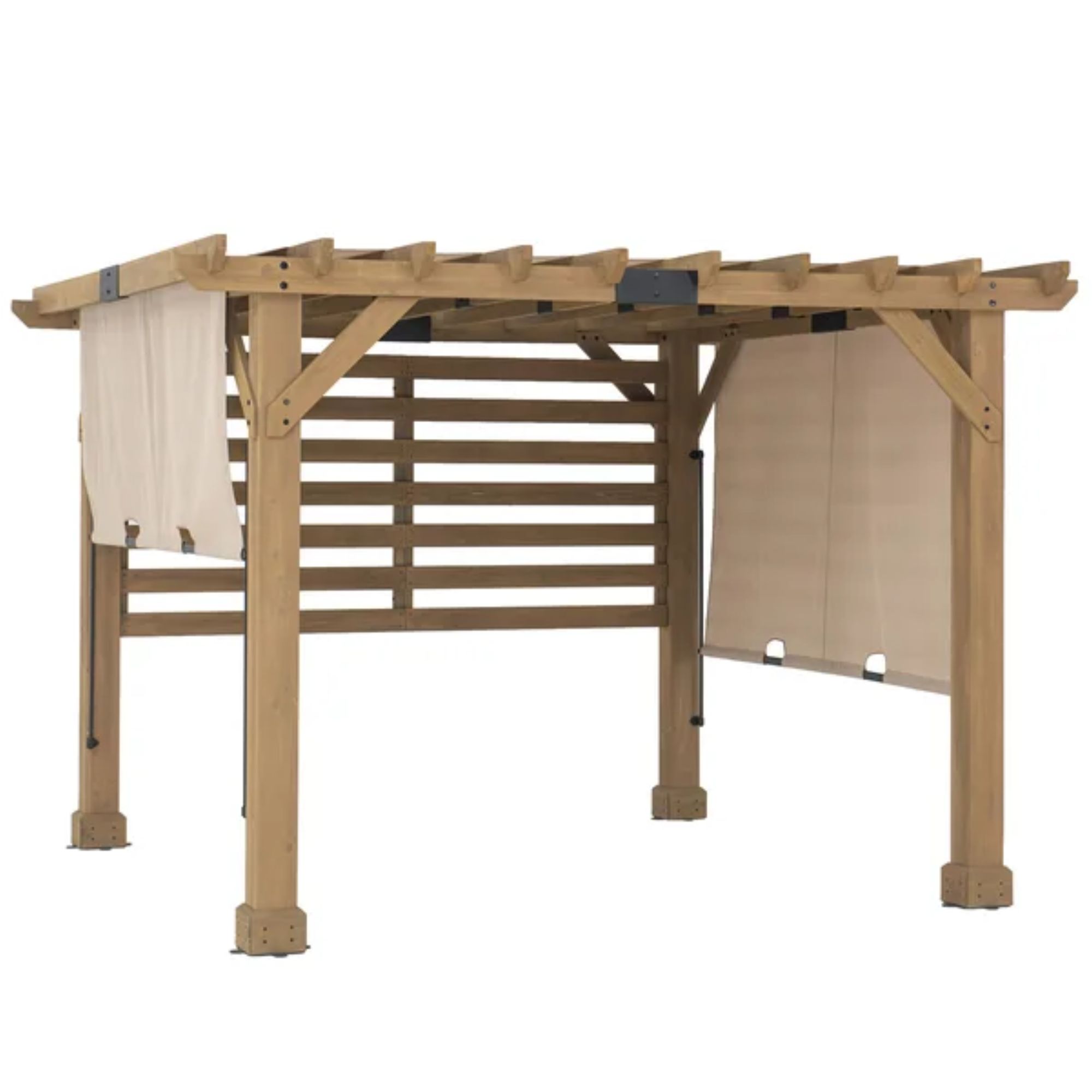Can you build a pergola next to a neighbor's fence? 6 rules from legal experts
These are the laws you need to know to avoid potential backyard conflict with your neighbors

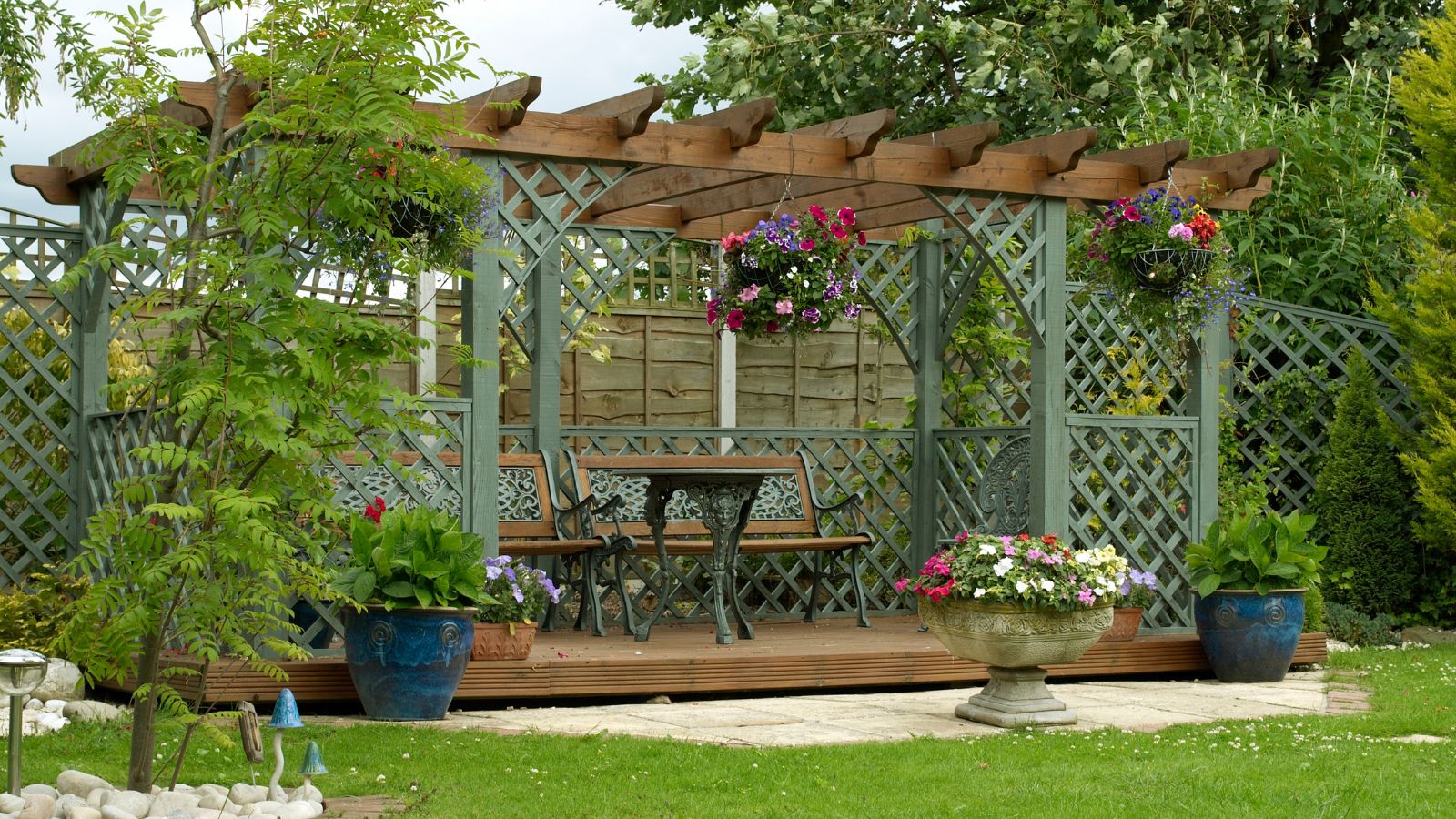
Design expertise in your inbox – from inspiring decorating ideas and beautiful celebrity homes to practical gardening advice and shopping round-ups.
You are now subscribed
Your newsletter sign-up was successful
Want to add more newsletters?

Twice a week
Homes&Gardens
The ultimate interior design resource from the world's leading experts - discover inspiring decorating ideas, color scheming know-how, garden inspiration and shopping expertise.

Once a week
In The Loop from Next In Design
Members of the Next in Design Circle will receive In the Loop, our weekly email filled with trade news, names to know and spotlight moments. Together we’re building a brighter design future.

Twice a week
Cucina
Whether you’re passionate about hosting exquisite dinners, experimenting with culinary trends, or perfecting your kitchen's design with timeless elegance and innovative functionality, this newsletter is here to inspire
Pergolas are the perfect way to introduce some shade into your yard. Not only are they stylish, but they can provide excellent support to climbing plants.
But before you start shopping for your pergola, there are some legal considerations to bear in mind. Building a pergola too close to your neighbor's property can have significant consequences and could cost you a lot of money in fines if you fall foul of the law.
I spoke to two legal experts about the rules governing pergolas, and they gave me some handy rules to follow to keep you from conflict with your neighbors.
1. Get a building permit
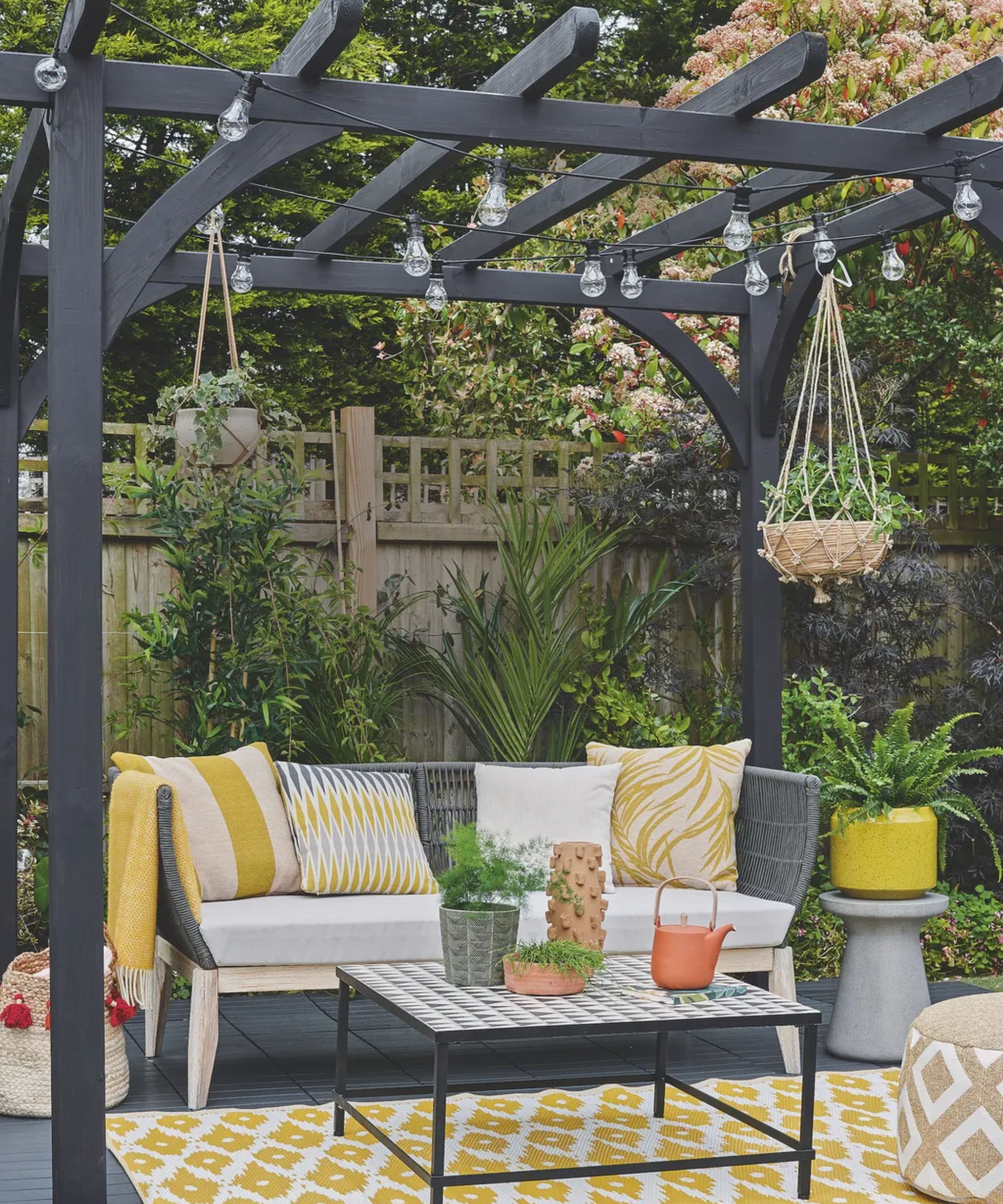
The experts I spoke to were unanimous on this point. Most large pergolas need a building permit to be constructed. Ben Michael, attorney at Michael & Associates, told me that 'In just about every county you will need a permit'.
Applying for one is pretty simple. Attorney Jamie Wright advises: 'Stop by your local Department of Buildings, visit your city's official website, or country office if you live in a smaller town.' She also told me that getting a permit is especially important if your pergola is large - above 12x12 feet - or attached to your house.
If you don't have a permit, your neighbor could justifiably report you to the authorities. Even if you build the pergola several yards away from their fence, if you don't have permission, you're breaking the rules.

Ben Michael has been practicing criminal defense law for nearly a decade. He has been named one of the Top 10 Criminal Defense Attorneys in Texas and the founder of the firm Michael & Associates.

Jamie E. Wright is a trial lawyer and principal of the J. Wright Law Group P.C. Before launching her successful solo practice, Wright spent over a decade in the defense bar practicing employment law, breach of contract and tort cases at several large and mid-size firms, representing municipalities, school districts, and Fortune 100 companies.
2. Talk to your neighbors
Once your building permit is sorted, one of the most important things is to inform your neighbor. Ben Michael told me 'A good idea before building the pergola and after you've obtained the proper permits is to have a conversation with your neighbor to make sure they know your plans.'
Design expertise in your inbox – from inspiring decorating ideas and beautiful celebrity homes to practical gardening advice and shopping round-ups.
It's a common courtesy and should smooth the path once building work begins. If everyone knows what's going on, there's no surprise once the structure is built.
Ben adds that 'Your neighbor might actually benefit from your pergola, as it might offer shade during part of the day to their property as well.' However, it's crucial to let them know. The shadow of your pergola could fall on their pool and make a cold patch, or stop their plants from getting enough sun. It's best to be on top of any potential issues before building work starts to prevent an argument in the future.
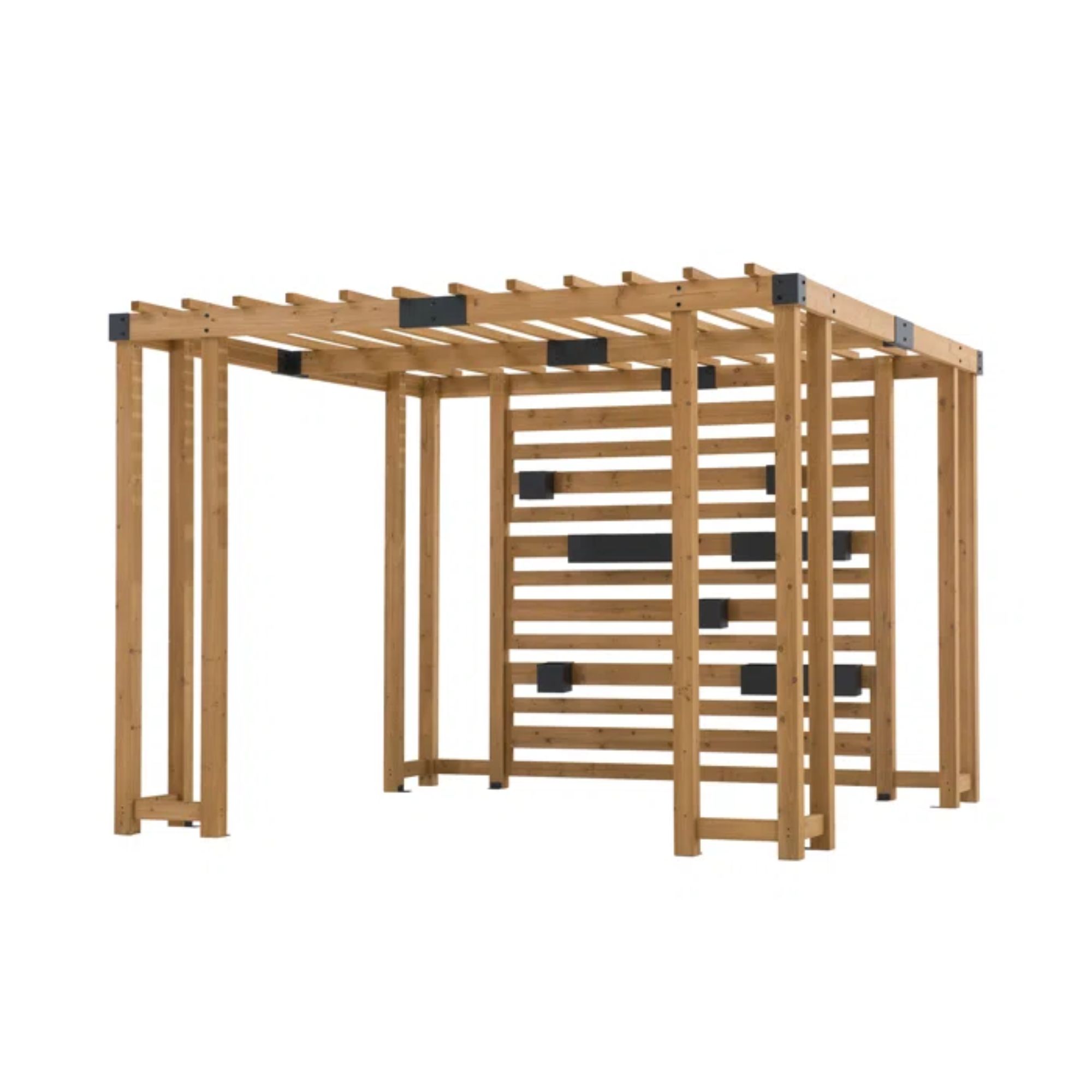
Seats: 4 Dimensions: 10.5ft x 10ft x 9.30ft Materials: cedar, plastic
This sturdy cedar pergola has a great bonus feature - a selection of plastic planters for creating a living wall effect. The four corners are perfect for adding in planters for climbing plants, too.
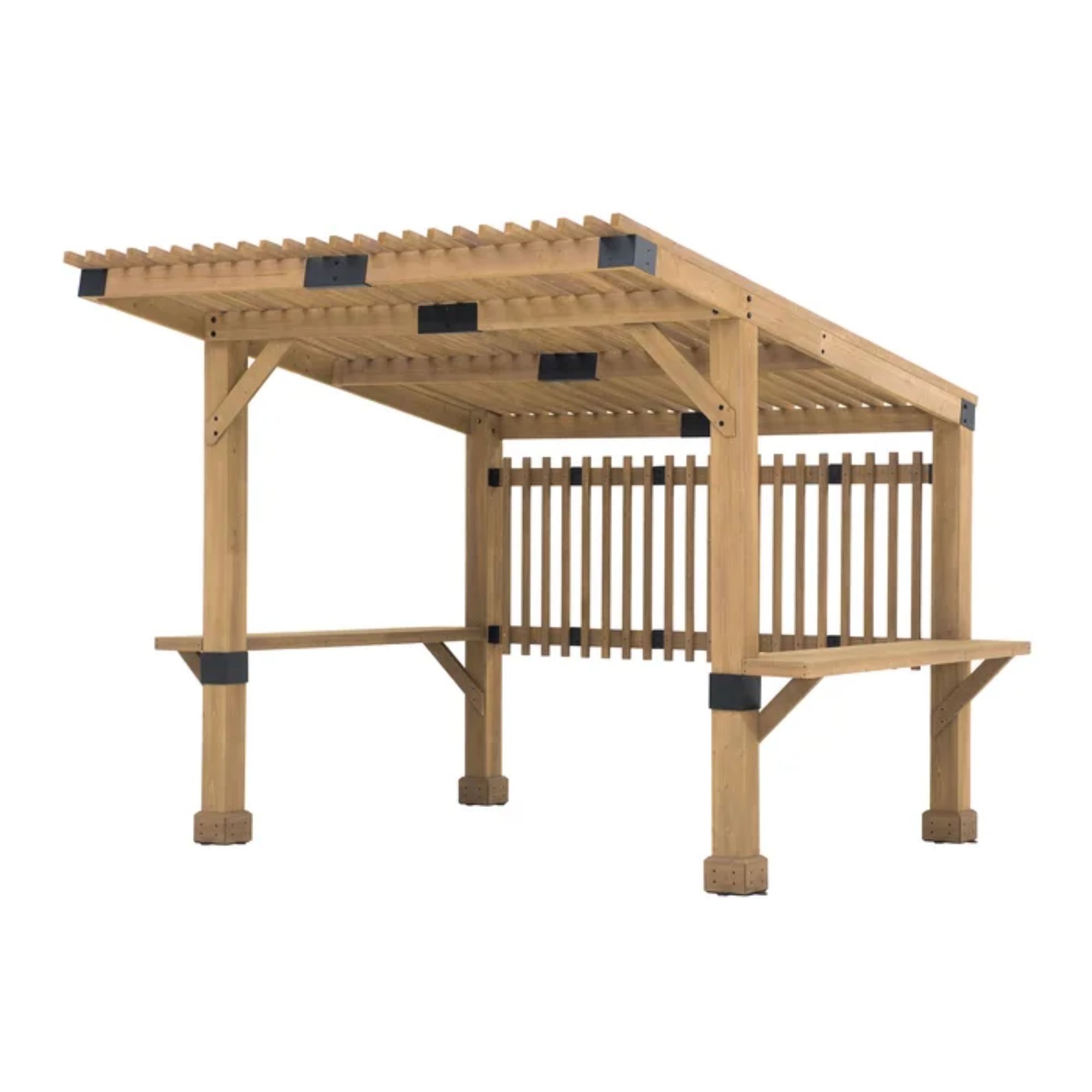
Seats: 4 Dimensions: 10ft x 11ft Materials: cedar
If you have a hot tub, this could be a perfect addition to your yard. Designed to give privacy and cover to a hot tub, this pergola also has two bars built in either side, perfect for holding drninks as you unwind.
3. Know your zoning rules
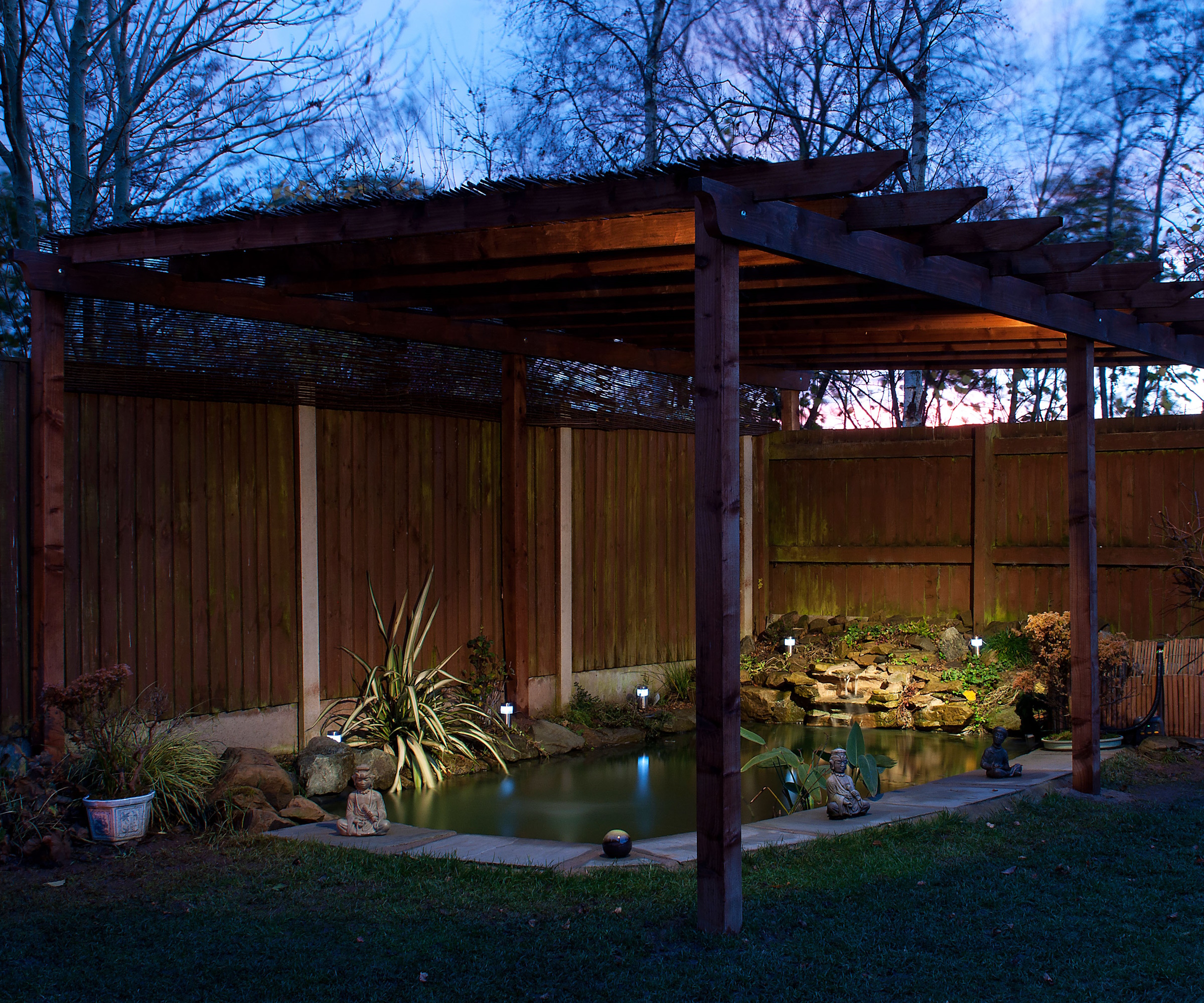
Once you've spoken to your neighbor and obtained your building permit, you can work on plotting where you want your pergola. The rules vary across the country but Ben gave me a helpful general rule: 'As long as your structure doesn't interfere directly with your neighbor's existing fence in any way, you're fine.'
If you leave a gap between your pergola and your neighbor's fence, the law is probably on your side. You've built something on your own property that doesn't directly affect their fence.
However, it's best to follow the law to the letter. Jamie Wright told me that 'Depending upon where you live, zoning laws require that any structure be a certain distance from property lines, typically from 5 to 20 feet, to ensure safety and privacy.' This may even be stipulated in your building permit, which makes it easier to plan.
4. Consider your materials

With most of the legal issues handled, you can start shopping for your pergola, but there are some potential issues here to be aware of, too. Some counties have rules about the materials and construction of your pergola.
The first reason to carefully consider your building materials is straightforward safety. Jamie Wright told me that 'While the materials of your pergola might not be strictly regulated, they should comply with local building codes for safety. Using durable and approved materials ensures your pergola is safe and long-lasting.'
Part of these safety concerns is the local climate. Jamie gave a great example. 'Take Florida for instance, and its susceptibility to hurricanes. These building structures need to withstand strong winds. Ensuring your pergola is securely anchored and built with sturdy materials is crucial.' This means that climate considerations vary across the country. A county where tornadoes are common may have rules about how you anchor your pergola; a county with heavy snowfall may mandate which materials you can use for its roof.
If you build a pergola with shoddy materials, your neighbor could have justifiable concerns that the pergola could be blown into their house in extreme weather. Building with high-quality materials should forestall any issues.
There's a rarer factor to bear in mind too. It doesn't apply to everyone, but some localities have rules about vernacular architecture standards. If you live in a historic home, you may not be allowed to add a modern metal pergola onto the building, as it clashes with the overall style of the area.
5. Measure everything
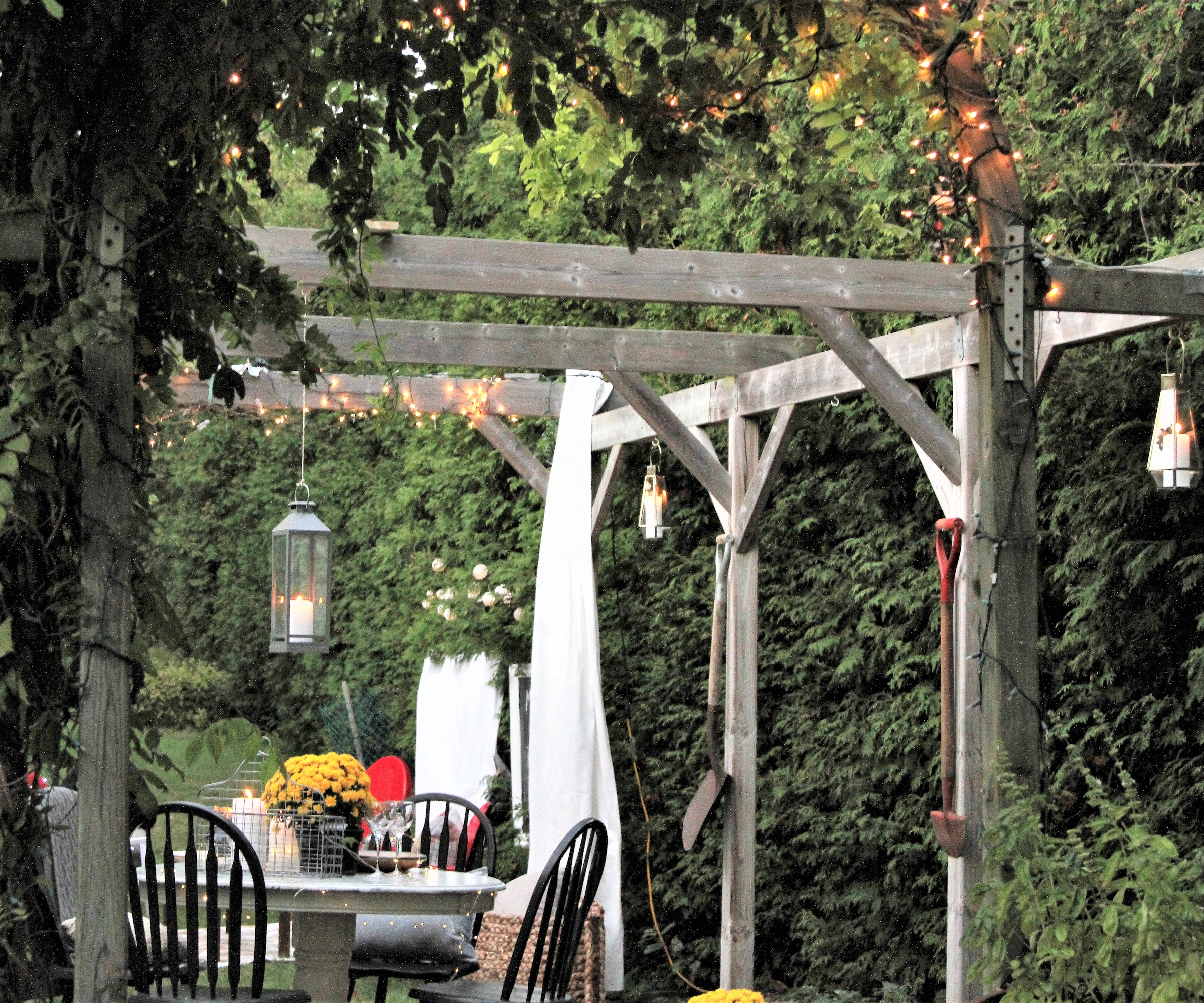
Above all, measure everything - including your yard. Firstly, double-check the size of your pergola. Regulations can vary according to the size of the pergola, so getting things an inch wrong could land you in hot water. Jamie Wright told me that bigger pergolas are often subject to much stricter rules than smaller structures, and might need more permits on top, especially if they're close to a neighbor's fence and likely to interrupt their view or create shade in their yard.
You should also measure your yard. Jamie says that 'The size of your plot can affect how large your pergola can be and how close it can be to the fence.' You might have picked out or designed the perfect pergola, but if you accidentally build it too close to your neighbor's fence you may be out of luck.
6. Take a look at HOA rules
The final consideration is homeowners associations. If you liv somewhere governed by a HOA, you may be fined for erecting a pergola that contravenes the rules. Jamie Wright says that 'HOAs usually want to keep the neighborhood looking nice and uniform, so they might have guidelines about the height, style, and placement of your pergola.'
Whatever your building permit says, your HOA may have even stricter requirements about how close you can build your pergola to their fence.
As with the initial building permit, it's smart to discuss this with the HOA. Jamie says that 'It's a good idea to get plans pre-approved and chat with a friendly, neighborhood attorney.'
Pergola FAQ
What's the best wood for a pergola?
Cedar is the best wood for a pergola. It's sturdy, weatherproof, and resists rot.
For more advice on pergolas, take a look at my breakdown of the difference between a gazebo and a pergola, or our ideas for lighting a pergola

As a gardens and lifestyle contributor, Alex makes sure readers find the right information to help them make the best purchase. Alex got his start in reviewing at the iconic Good Housekeeping Institute, testing a wide range of household products and appliances. He then moved to BBC Gardeners’ World Magazine, assessing gardening tools, machinery, and wildlife products.
